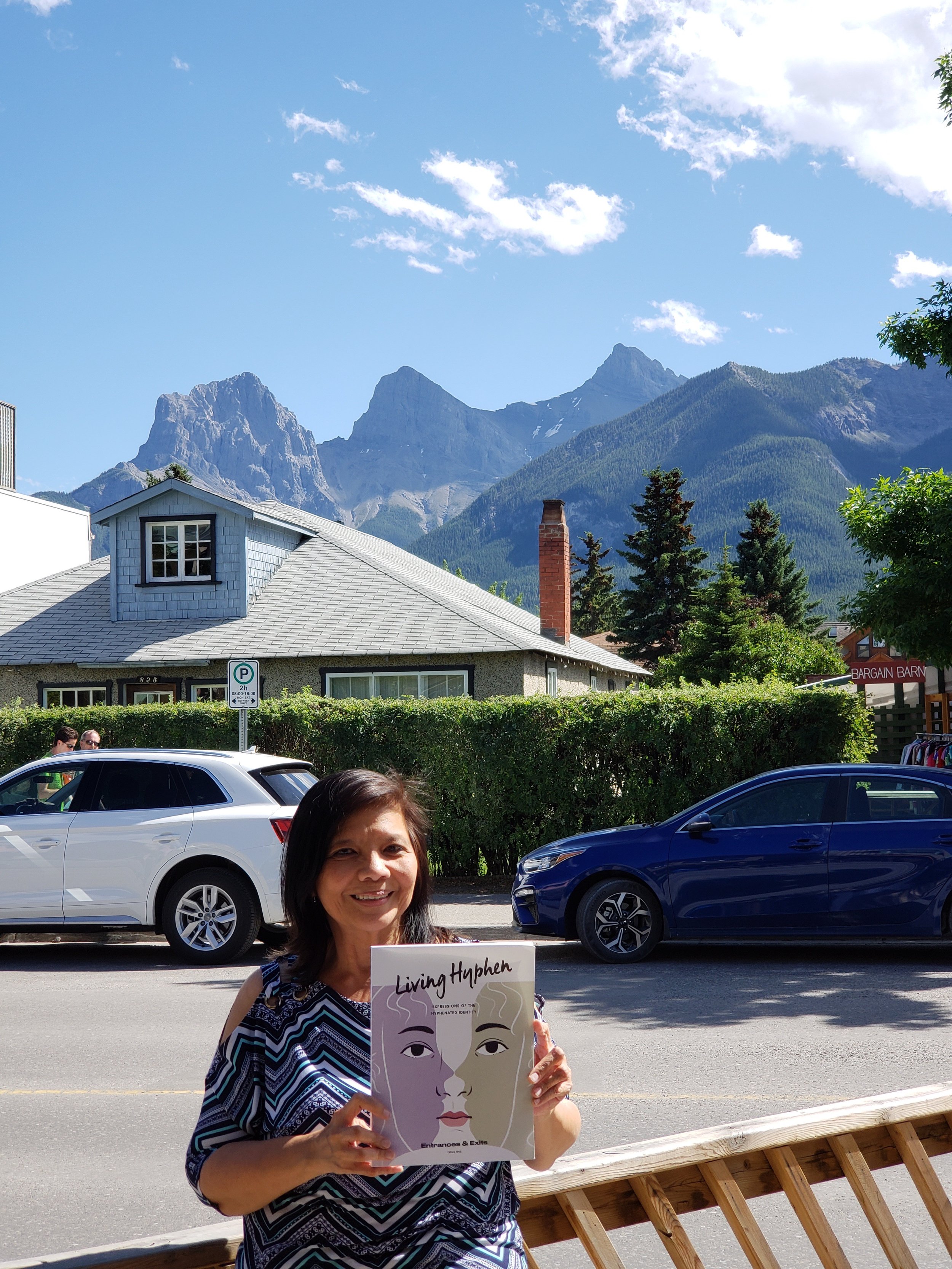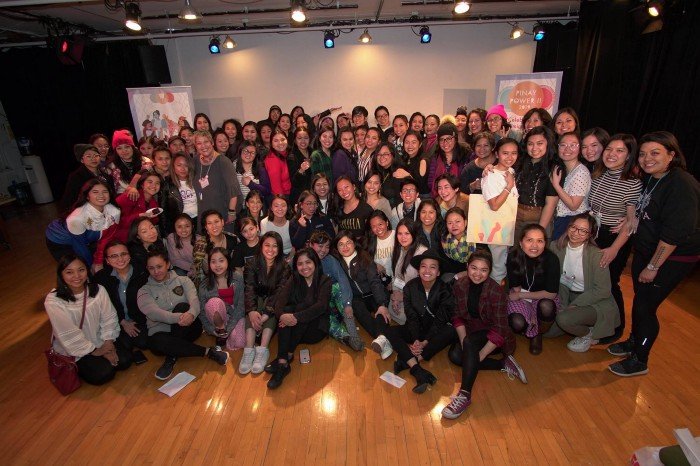This post was originally published on our Medium blog.
Living Hyphen’s theme for Issue 2 is a big one. It is ambitious. It is delicate. It is all-encompassing.
Across Generations aims to uncover the stories of our ancestors, of our lineage, of the blood that courses through our veins. And how that all influences our present day.
Not exactly light, is it?
It’s no wonder then that we’ve had to extend our deadline twice since announcing our call for submissions back in October. We’ve received an overwhelming amount of emails from those in our community requesting for more time. We’ve received so many notes expressing the difficulty in capturing a theme so big, a theme that touches not just our own personal, individual stories (which is hard enough in itself) but also those of so many others who have come before us.
I understand that on a very real level. I myself have been trying to write this blog for months now and have spent countless hours in front of my laptop trying to find the words to even begin.
Across Generations, as all things Living Hyphen, comes from a deeply personal place for me. But this theme cuts to my very core. Why? How? Let me count the ways…
A Story About Mama Yu
Many of you don’t actually know this, but Living Hyphen was made possible, made physical thanks to my mom.
My mama — who many have come to know affectionately as Mama Yu — is Living Hyphen’s publisher and sole source of funding. She has, in a very real and concrete way, brought this entire thing to life. She has believed in this project since the day I conceived of it and her support has never wavered.
She’s been involved in every single step of this process. From ideation to curation, from editing to distribution. She is a frequent speaker at our events, a champion of the magazine in every room she finds herself in.
Mama Yu in Canmore, Alberta
After realizing that over 10% of our Canadian orders were from Alberta (second only to Ontario where we are based) she hopped on a flight to Calgary and then drove to Edmonton to woo bookstores and get the magazine on their shelves. According to Mama Yu, if this was resonating so strongly in Alberta, then it should be made available there.
In fact, she insists on a monthly basis that we go “on tour” across the country to make Living Hyphen available everywhere. If you thought I was fervent in my passion for this project, well then, you haven’t met my mom.
Working on this project together has changed our lives. It has changed our relationship in ways that we are still discovering.
She often tells me how Living Hyphen has added a new dimension to her life, giving her new and deeper things to think about that she never had to before. Every day, the mother-daughter dynamic lessens as we move closer towards friendship, teaching one another in equal exchange with a deep love and mutual respect.
At our launch party back in October 2018, she took the stage to share what this experience has meant to her. She told a story about how, when she and my dad were deciding to leave the Philippines to move elsewhere, she came to Canada on a sort of reconnaissance trip to see if this was the place for us. She shared her reasons for moving here — Canada was progressive and multicultural in ways that the Philippines wasn’t and still largely isn’t. This was the better life she had envisioned for us, for me.
Photo by Goodbird at our launch party
But she also shared that she didn’t realize that migration would force upon me a disconnect in belonging, doubts around my identity, a longing for a home that never really was mine. All the feelings that compelled me to create Living Hyphen as a publication, a space, and as a community.
She quoted a line from our contributor Clare Yow’s essay Tip of My Tongue:
“Before I left Singapore and after — once my family settled in Mississauga — I was asked repeatedly why we were leaving or why we’d moved. “For a better life,” I mouthed many, many times. For my parents, this meant less stress and more opportunity—be it in education or livelihood, for us kids. The words had no weight for me at that age. Now I interpret it as having given me the chance to own experiences and sentiments I might not otherwise have.”
Building Living Hyphen together — even just the sheer possibility of it—is that better life for us.
I treasure every moment my mom takes the mic to share anything about herself, about her own journey, about me, and about us. Perhaps (I hope) she’ll gift herself the time and space to write for Issue 2.
Photo by Jennilee Austria from our Queen Books storytelling night
The Intergenerational Divide
I know our story isn’t the norm. It is very much the exception.
Over the course of the last year or so, I’ve heard from so many in the Living Hyphen community, including our very own contributors, that their parents and family have no idea that they are writers and artists.
Our first birthday party
I consider this a tragedy.
I consider it a tragedy because I’ve seen firsthand the powerful stories and the incredible talent these people have to share and that the world, especially their parents, would be privileged to receive.
I consider it a tragedy because this is exactly the reason why our parents migrated in the first place.
Our parents and those who have come before us moved to faraway lands and sacrificed so much precisely so that we may have better opportunities, precisely so that we may pursue a life of our choosing — including careers that centre around the arts.
But I understand too. I understand that when you have been in survival mode your entire life and it is all that you have ever seen in the generations that came before you, it is hard to consider anything else. It is immensely difficult to think, let alone venture, outside of all you have ever known.
There is a lot of healing to be done in our communities. A lot of unlearning of toxic practices that were necessitated by our survival both in our ancestral lands and in our adopted homes.
Photo by Meaghan Froh Metcalf from our intergenerational writing workshops at the Toronto Public Library
Across Generations is an invitation to begin unlearning all of that with patience, tenderness, and love. It is an invitation to begin healing.
In our call for submissions, we ask you to open up these conversations with your loved ones — your parents, grandparents, aunts and uncles, children, and grandchildren — so that we might open the door to that healing.
It might be a small gesture, but seismic shifts always begin with these small cracks, right?
Myself As An Ancestor
Last April, I went to Pinay Power, the first Canadian conference bringing together Filipina scholars, activists, artists, and community and cultural organizers in the diaspora. I was profoundly moved to have sat in community with 150+ Filipina women from both Canada and the USA working across academia, the arts, and community organizing — some of us newcomers, some of us first/second/third generation, some of us younger, some of us older.
Photo by Jan Roi Orque at Pinay Power II
I attended a workshop by Christine Abiba of Pinay Liminality where they asked me to write a letter to my descendants. It may sound dramatic but that simple act of letter-writing for a future generation of my direct lineage was life-altering for me. It was the first time it had ever occurred to me that I would be an ancestor someday.
I think a lot about the past. I think a lot about the present. But I almost rarely ever think about the future in any real, concrete way. It’s too abstract for my mind and so far removed from my everyday life.
Me and my two nieces at our launch party. Photo by Goodbird.
Many would say and have told me that Living Hyphen is paving the way for future generations to see themselves represented in the media, to envision themselves wherever/whatever they want to be. Giving future generations the opportunity to dream bigger, to dream wider.
But as selfish as this may sound, I didn’t do it for them. It was never for this abstract, unknowable future generation. No. I built Living Hyphen for me. I built Living Hyphen to see in the world what I had always wanted growing up. For myself, for right now.
But that letter-writing exercise had my head spinning. It gave my work so much more significance and Living Hyphen an even higher purpose that had not really occurred to me.
That conference made me feel expanded, made me feel expansive. That conference, much like these ongoing conversations I’ve been having with my mom, showed me the possibility for connection across generations. It showed me the healing and beauty that comes from that.
It is vital for us to be having these conversations in academic and artistic and activist circles like Pinay Power. But I am hungry for these conversations to happen in our more intimate, more delicate and precious relationships where the stakes are so high but the rewards immeasurable. I am hungry to take my relationships with all of my family, not just my mother, to this higher place.
Striving for More Intergenerational Storytelling
For all of these reasons — and for so many more that I’m still unsure of how to capture — our second issue is an homage to our ancestors and to our descendants.
I believe that intergenerational storytelling is integral to the healing our communities need. I believe in breaking down the barriers, in correcting the misunderstandings, and in finding the words that we cannot say between and across our generations.
I believe in creating connections amongst our parents, our elders, and all those who came before us — whose dreams we are manifesting in small and big ways, whose sacrifices made these very dreams come true.
I count myself very lucky to be able to have these conversations with my mother. To unpack our individual journeys as women and to take stock of the different generations, cultures, and environments in which we are becoming/have become the women that we are.
I hope that Across Generations is the start of opening up those pathways in your relationships too.











